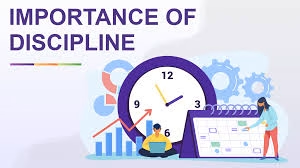
How Nigeria’s Entertainment Industry Really Works: The Wild Combo of Chaos, Culture & Cash
Nigeria’s entertainment industry has exploded Nollywood pumps out thousands of films yearly, Afrobeats artists dominate global charts, and skit-makers entertain millions. But beneath the flash, the glamour, and the social media hype lies a chaotic system rife with exploitation, inconsistency, and structural cracks.
This is no fairy tale. It’s a controversial deep dive into how Nigeria’s entertainment world operates—and why it’s both golden and grotesque.
1. The Numbers: A $15 B Industry… in Theory
- The sector is expected to reach $14.8 billion by 2025, growing at about 16.5% annually (Whatsnextng.com).
- Nollywood and music contributed
₦154 billion ($197 million) to GDP in 2023 (Vanguard News). - Streaming and media gaming are surging: from $65 million to $107 million OTT growth and internet ad revenue doubling .
The headlines say it’s booming. On the streets? A wild combination of opportunity and opacity.
2. Nollywood: $7 B Output, But Still DIY at Heart
Nollywood churns out 2,500+ films yearly, contributing 2.3% to GDP (TIME). But production is often DIY:
- Shot on generator-powered sets.
- Actors work in living rooms.
- Amateur lighting and audio even in “blockbusters” .
Piracy eats profits, cinemas struggle, distributors pull out. Netflix once pushed but is now scaling back (Businessday NG). YouTube becomes the new launchpad viral hits like Love in Every Word reached 5 million views in days .
The controversy? Nollywood is lauded globally, but domestically it lacks structure, regulation, and fair pay .

3. Music: Afrobeats Fuel, But No Pipeline
Nigeria is producing global stars Burna Boy, Wizkid, Tems, Rema and Spotify payouts jumped to ₦58 billion (~$38 million) in 2024). But local structures are weak:
- Weak copyright systems.
- Poor royalty distribution.
- Artists often depend on foreign labels or touring.
Godwin Tom, Wizkid’s ex-manager, laments the chaos: local labels mismanage artists and deals Revenue flows mainly from abroad, with Nigerian platforms still catching up.
4. The New Creators: Skit Makers, Influencers & Web Drama
The youth are forging new paths:
- Skit-makers like Taaooma and Sabinus now command brand deals in the millions ( Whatsnextng.com).
- Web series (e.g. The Men’s Club, Makemation) are gaining traction and monetizing on YouTube
Internet-first content is booming. But monetization remains ambiguous ad rates, commissions, and analytics are poorly standardized.
5. Infrastructure & Regulations: Still Broken
Growth is slowing thanks to:
- Pirates stealing content freely.
- Fragmented regulations from NFVCB .
- Poor infrastructure: unreliable power, low internet speeds.
- A weak legal system that doesn’t enforce IP rights
These gaps leave creatives vulnerable, unprotected, and underpaid.
6. Who’s Really Cashing In?
- Top-tier artists with global deals rake in large sums.
- Young creators earn via monetized streaming and YouTube.
- But the majority of creatives especially backstage survive on scraps.
Despite the hype, someone’s doing well but it’s usually those who can leverage international platforms and networks.
7. The Tech Shift: Streaming, NFTs & AI Opportunities
- Streaming platforms projected to grow: music, podcasts, video-on-demand (Wikipedia).
- YouTube creators are disrupting traditional gatekeepers (The Guardian Nigeria).
- Web3, NFTs, AI audio/video tools present new frontiers (The Guardian Nigeria).
This is a chance for creators to seize monetizable control if they can navigate the complexity.
8. Remaining Challenges & Controversial Debates
a) Authenticity vs Westernization
Web dramas are increasingly mimicking Western tropes (lockers, foreign norms) . This erodes “Nigerianness” but some argue it’s key to global acceptance.
b) Wealth Disparity
Yes, stars profit, but the average ground-level artist still struggles highlighting unequal wealth distribution in the sector.
c) Government vs Grassroots
Efforts like the Creative Economy Development Fund and IP reforms are underway (TIME, mondaq.com). But bureaucracy throttles new businesses, leaving grassroots creators in limbo.
9. The Future: Will Structure Finally Arrive?
PwC projects E&M growth at 8.6% to 2028 (Nairametrics).
Lagos Arena’s construction signals investment in live entertainment infrastructure (Wikipedia).
National institutes and IP acts hint at systemic change .
But unless piracy is curbed, regulations are enforced, and creators protected, Nigeria’s entertainment scene will remain glorified but underserved.
A Lion With Limbs Still Bound
- Nigeria produces global content winners, but lacks a profitable, systemized internal economy.
- Creatives survive on foreign deals, not local support.
- Infrastructure deficiencies mean high costs, low access, and uneven distribution.
- Tech offers hope if creators can understand and adapt fast.
- Government initiative is encouraging but gatekeeping remains a problem.
Finally, Nigeria’s Entertainment is a Diamond in the Rough
Yes, Nigerian entertainment is winning but only the tip of the iceberg.
Nigeria’s entertainment industry is not just an engine of cultural pride; it’s a powerful force challenging colonial narratives, shaping global soundtracks, and rewriting the visual language of African storytelling. From the dirt roads of Enugu to the high-rises of Lagos and the global stages of Coachella, Nigerian entertainers are shaking tables and building legacies. But here’s the ugly truth no one wants to say out loud:
Talent alone won’t save the Nigerian entertainment industry. Structure will.
Yes, we have Burna Boy, Wizkid, Genevieve, AY, Basketmouth, Sabinus, Tems, and hundreds more. Yes, we’ve proven that you don’t need perfect systems to make global noise. But we’re still hemorrhaging profits, intellectual property, and creative potential because the industry runs more on vibes than verified systems.
This sector hailed as Nigeria’s “new oil” is still unrefined.
Piracy is rampant. Contracts are shady. Gatekeeping is brutal. Artists are overworked and underpaid. Regulation is scattered. Monetization is a mystery.
And yet, every young Nigerian dreams of “blowing” because of what the industry looks like, not what it pays like.
If we want to stop being a factory for international profits and start becoming a global industry powerhouse, we must:
- Build stronger distribution and royalty systems.
- Enforce intellectual property rights.
- Educate young creators about contracts, monetization, and digital ownership.
- Demand government accountability in supporting entertainment as a formal sector, not just a PR tool.
- Embrace tech not just as a buzzword, but as a scalable business model.
Because at the end of the day, Nigeria doesn’t lack talent it lacks protection, policy, and predictability.
Let’s stop romanticizing hustle culture and start professionalizing our entertainment economy.
The glitz is real but if we don’t fix the system, future generations will inherit nothing but a dusty stage and faded hype.
Would you like me to now insert this conclusion directly into the full blog article, or would you like it optimized for LinkedIn or Instagram reels as a quote-card?
It’s time to stop celebrating talent alone, and start building pipeline, equity, regulation, and structure for this industry to truly become a global powerhouse.
Because right now, while the lion roars on international stages, it’s still bound at home.







